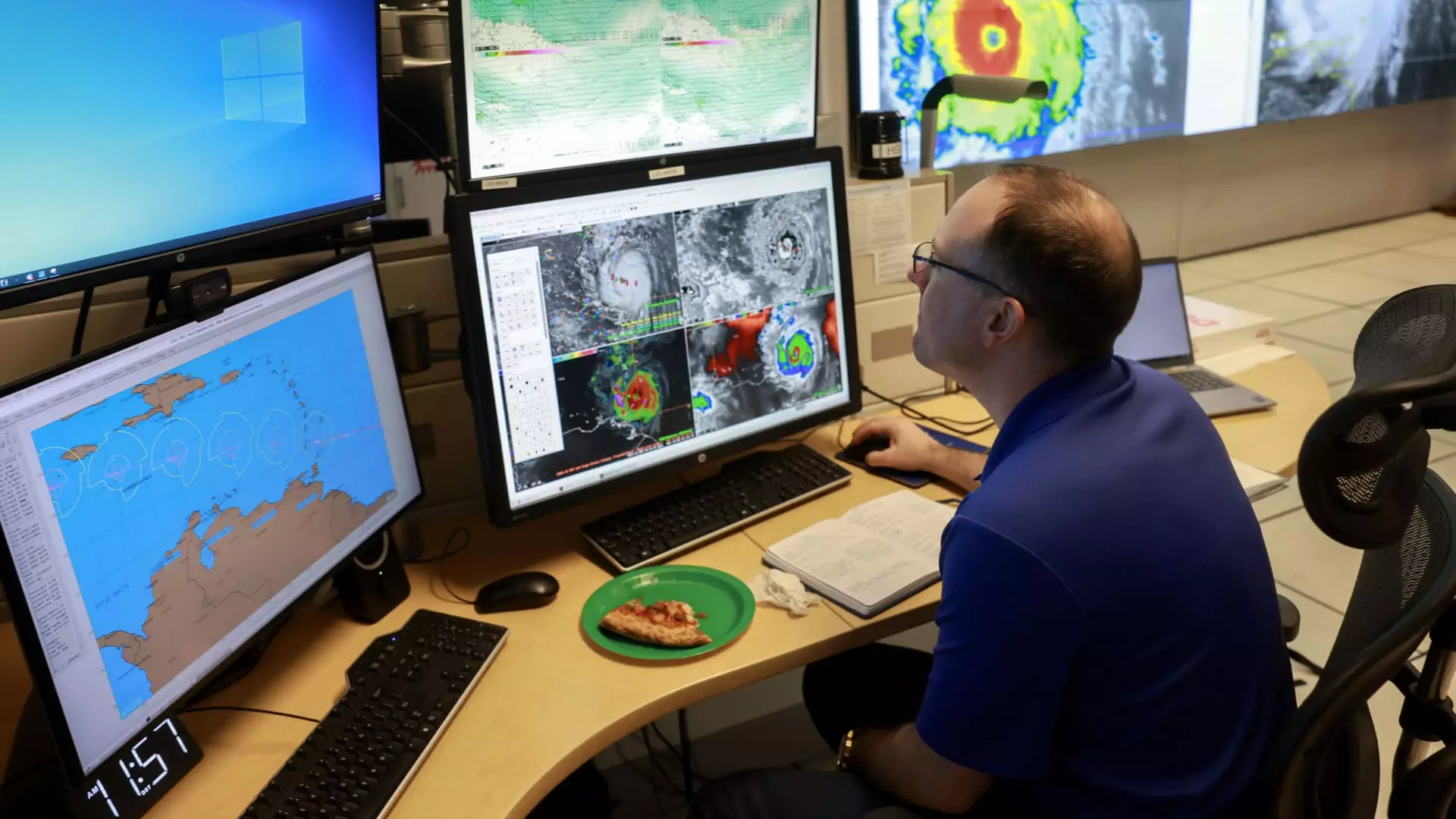Hurricane Beryl has emerged as a formidable force, becoming the strongest hurricane ever recorded in the month of July. This extreme weather event has set a precedent not just for July, but has also rewritten the record books for June. As people’s lives are upended in the Caribbean, the urgency to acknowledge and address the role of climate change in hurricane intensification has never been more apparent. Beryl has showcased the increasingly erratic behavior of tropical systems, developing at an unprecedented pace and hitting the shores long before the typically active months of August and September.
Experts attribute the rapid intensification of storms like Beryl to rising sea surface temperatures, a consequence of climate change. The storm reached Category 5 status, the highest classification on the SAFFIR-SIMPSON Hurricane Scale, characterized by sustained winds exceeding 155 miles per hour. This is a striking reminder of the changing dynamics of our planet’s climate, where storms that used to be confined to specific seasons are pushing those boundaries, creating new risks for vulnerable coastal communities.
Beryl’s violent journey across the Caribbean has led to widespread destruction, displacing thousands and claiming lives in multiple nations. Reports indicate fatalities in Grenada, St. Vincent and the Grenadines, and northern Venezuela. The repercussions of such hurricanes don’t merely stop at immediate destruction; they extend into the economic, environmental, and social realms. For instance, in Jamaica, the Prime Minister declared a disaster area and implemented curfews in an attempt to manage the crisis. This governmental response underscores the sheer magnitude of the disaster and highlights the struggles to protect citizens against such sudden and powerful threats.
As outlined by the National Oceanic and Atmospheric Administration (NOAA), the upcoming Atlantic hurricane season is forecasted to be above normal, with potentially 17 to 25 named storms and a concerning number of major hurricanes on the horizon. This warning resonates with scientists who have long advised that climate change continues to amplify the frequency and intensity of storms.
The relationship between oceanic temperature patterns and hurricane activity is crucial to understanding Beryl and similar storms. The El Niño-Southern Oscillation (ENSO) plays a pivotal role in hurricane dynamics. While El Niño is generally associated with a reduction in Atlantic hurricane activity, conditions are shifting towards a La Niña phase, which could foster more favorable conditions for intense storms in the Atlantic. With ocean temperatures currently at record levels, the potential for future storms instills a deep sense of foreboding among meteorologists and climate scientists alike.
The climate crisis is not a distant prospect; it is a pressing reality evidenced by events like Hurricane Beryl. While worldwide efforts to reduce carbon emissions are vital, the immediate impacts are disproportionately felt by less developed nations, particularly those in the Caribbean, which typically contribute minimal emissions compared to more industrialized countries. The Prime Minister of Jamaica aptly pointed out that while their carbon footprint is negligible, they are facing the catastrophic outcomes of climate change head-on.
Communities affected by Hurricane Beryl are grappling with acute shortages of essential supplies such as food, clean water, and medical kits. This situation underscores the necessity for robust disaster preparedness and response frameworks. The outpouring of support from neighboring countries and international organizations will be crucial in aiding recovery efforts. However, this also highlights an overarching need for long-term systemic changes to bolster community resilience against future natural disasters.
The narrative surrounding Hurricane Beryl serves as a recharge for discussions about global warming and its ramifications. Each alarming record set by hurricanes is more than just a statistic; it reflects a pressing urgency for collective action against climate change. Storms like Beryl are not merely acts of nature; they are calls to action that demand immediate attention, collaboration, and a commitment to safeguarding the future of vulnerable communities everywhere. As we reflect on the devastation caused by Hurricane Beryl, it is imperative that we learn from the past and act decisively to mitigate the impacts of climate change, ensuring preparedness for what is likely to be a challenging era ahead.


Leave a Reply